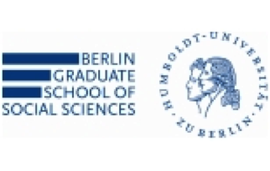
On march 21st I jointly organized a one-day workshop with two other PhD candidates from the BGSS on the international diffusion of contention, resilience & borders during the Arab Uprisings.
The aim of the Research Working group was bringing together scholars that dealwith trans- and international diffusion processes during the Arab Uprisings in 2011. The workshop focussed on the question how to conceptualize diffusion processes and their underlying mechanisms on the level of the social movements, the contested incumbent regimes as well as the trans- and international actors involved. Although the participants had a different take on the changes that have come about within or after the Arab Uprisings and are concerned with different phenomena all contributions were in some way dealing with the effects of diffusion processes on their respective field of investigation.
The format was intended to provide an opportunity for the participating PhD candidates to discuss there work in progress within the frame of a common overarching theme with each other and two distinguished senior scholars that were invited as discussants. After an introductory talk given by Donatella Della Porta (EUI) dealing with the conceptualization of diffusion in the social sciences with an emphasise on the importance of the temporal dimension of diffusion processes. After the introduction each of the prepared papers was briefly introduced in a presentation. The presentations were not only summing up the main arguments of the papers but also pointing out potential weaknesses or questions to the discussants. Subsequent to each of the presentations there was sufficient time for a comprehensive comments and discussion of the presented papers. All three participants were very content about the critical and constructive comments. The discussion was coined by an open discussion leaving room for replies by the author and an extensive debate.
In the evening the workshop was rounded up by a keynote talk by Reinoud Leenders (KCL) with the title: “Social Movement Theory and the Arab Uprisings: Why we need it to study peaceful and violent mobilization”. The keynote was an open event and around twenty interested students and academics were present at the keynote, which led to a lively discussion. The evening was concluded over extended talks on the topic over some wine and food in the HGS Foyer.
Papers discussed
- Reconfigurations of transnational border politics in times of the Arab Uprisings: Comparing border and migration management in Tunisia and Morocco. (Inken Bartels)
- Legitimacy through Reform? The Impact of Authoritarian Learning on Reforms & Legitimacy of Contested Regimes. (Ilyas Saliba)
- Transnational Diffusion and the Making of a Post-Neoliberal Order. Political Cultures of Opposition and Creation in the Egyptian Revolution (Christoph Sorg)
 RSS Feed
RSS Feed
